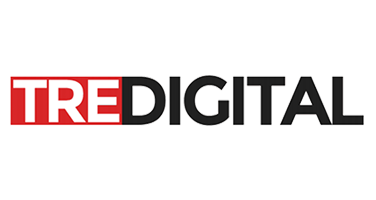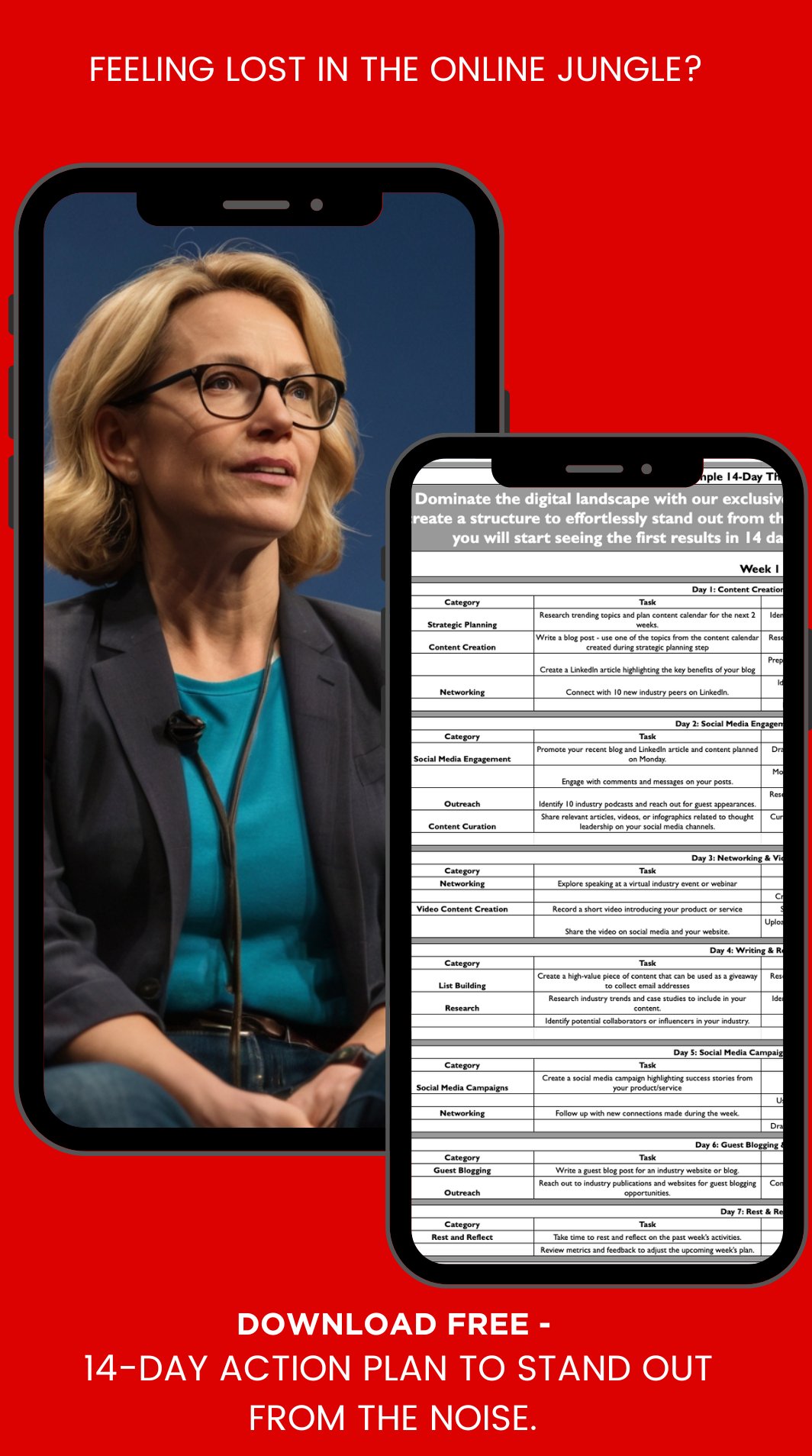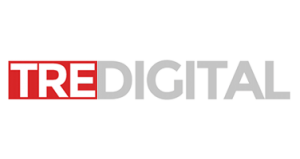Let’s be honest, the whole “personal branding” thing can feel a little…well, inauthentic, right?
Like crafting some kind of online caricature to be “liked” by everyone. Don’t get me wrong, I totally get the appeal. Building a recognizable name can open doors, but for me, it always felt a bit like a popularity contest – and frankly, I never peaked in high school.
There had to be a better way.
But in today’s competitive landscape, standing out is crucial.
Two popular strategies leverage individual knowledge and reputation for success: expert-driven growth and personal branding. While they might seem similar, their focus, intent, and implementation differ significantly.
Expert-driven growth isn’t about building a flashy online persona; it’s about leveraging your actual expertise to achieve real business results. Think of it as the antidote to the personal branding hype.
Here’s the thing: people see through the fluff.
They crave authenticity and value. Expert-driven growth allows you to showcase your genuine knowledge and skills, building trust and credibility with the audience that truly matters – your target market.
Don’t get me wrong – personal branding is still a very powerful strategy. But it is not for everyone. If you are passionate about issues but not striving to be everyone’s favorite online personality expert-driven growth maybe the the path for you.
Let’s dive deeper to understand which approach might be the better fit for you.
Table of Contents
ToggleFocus and Intent: Expertise vs. Popularity
Expert-driven growth has a clear objective: leverage deep expertise to drive tangible business results.
It rests on the belief that a team’s specialized knowledge and skills are the engine of growth.
By offering solutions to client problems, creating valuable educational content, and sharing professional insights, experts establish themselves as trusted authorities. This translates to increased credibility, stronger industry reputation, and ultimately, business growth.
Personal branding, on the other hand, prioritizes building a recognizable and relatable individual identity.
It’s about how you’re perceived – your personality, values, and public image. Here, the value proposition comes from combining your skills, experiences, and personal traits to create a distinct persona. Success translates to individual recognition, opening doors for speaking engagements, book deals, or media appearances.
Implementation: Content and Engagement Strategies
The way you implement each strategy also reveals their core differences.
Expert-driven growth thrives on educational and insightful content. In-depth articles, insightful webinars, industry event participation, and expert consultations showcase your expertise and address specific audience needs.
Engagement focuses on a professional audience, building connections by solving their challenges and demonstrating value. Success is measured through clear business metrics like revenue growth, client acquisition, and project success rates.
Personal branding employs a different content strategy.
Here, storytelling, personal experiences, and opinion sharing take center stage.
Sharing personal anecdotes, lifestyle content, behind-the-scenes glimpses, and motivational messages help you connect with a broader audience on an emotional level. Engagement focuses on appealing to interests, aspirations, and emotions. Success is measured through personal metrics like social media following, personal influence within your field, and public recognition.
Key Differences: A Clear Picture
At its core, expert-driven growth is business-centric.
It leverages expertise for tangible outcomes that benefit the organization. Personal branding, however, is individual-centric, aiming to create a distinct personal identity.
Content and engagement also diverge.
Expert-driven growth prioritizes high-quality, knowledge-based content that solves problems and offers value. Personal branding fosters connection with relatable and engaging content.
Audience and impact take different paths.
Expert-driven growth targets a professional audience, impacting business metrics directly. Personal branding has a wider target, focusing on building personal influence and recognition.
Measuring success highlights the final distinction.
Expert-driven growth thrives on business success indicators like revenue, client growth, and market share. Personal branding tracks personal achievements like social media influence, public speaking engagements, and personal opportunities.
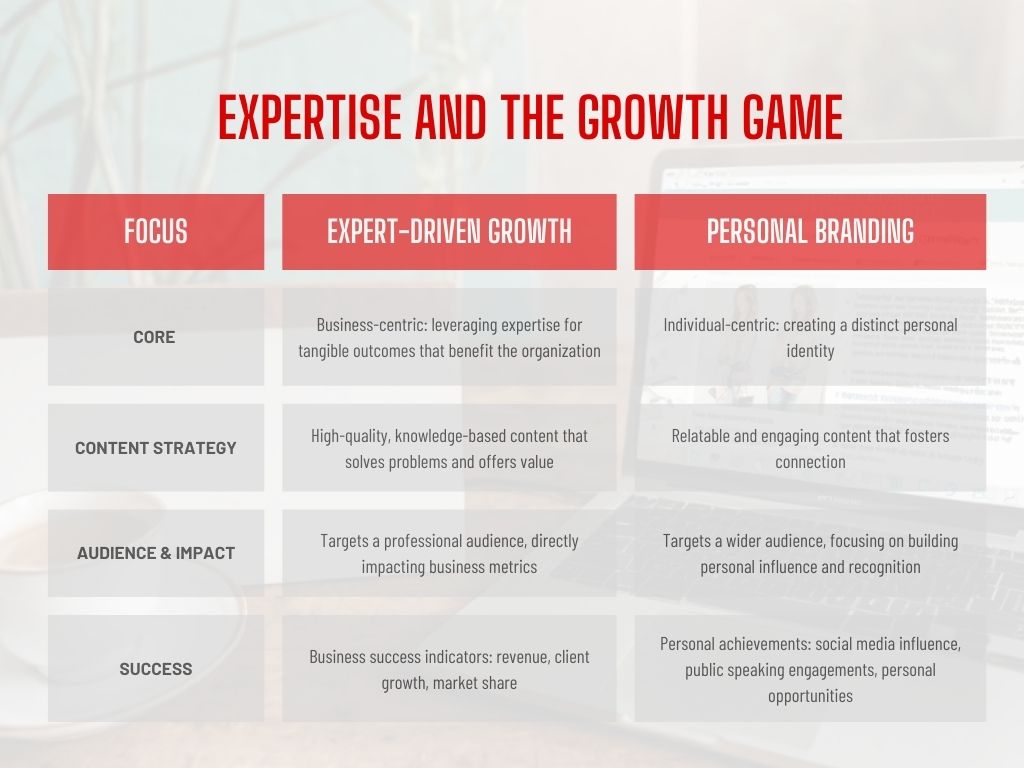
Conclusion: Choosing Your Path
Both strategies offer value, but understanding these differences empowers you to tailor your approach. Expert-driven growth leverages your deep knowledge to achieve strategic business goals. Personal branding helps you build a distinct personal brand, opening doors for individual growth.
Choose the path that aligns with your goals and values. Regardless of your choice, authenticity is key. By focusing on genuine expertise or a relatable persona, you can ensure a more effective and long-lasting approach to success.
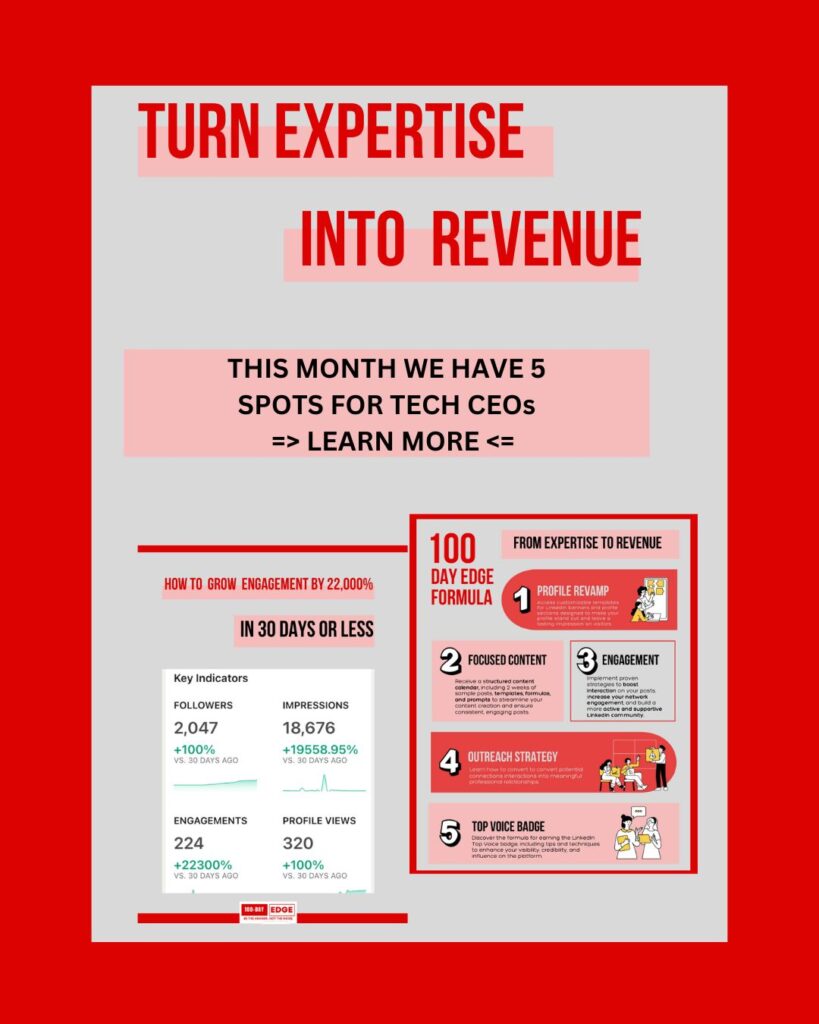
This month, my team is helping 5 technology leaders transform their expertise into tangible business results.
In 100 days, you’ll:
- Stage 1: Define your EDGE and optimize your online presence.
- Stage 2: Engage your tribe and land your first high-value client.
- Stage 3: Set your EDGE on fire with strategic content and recurring revenue.
